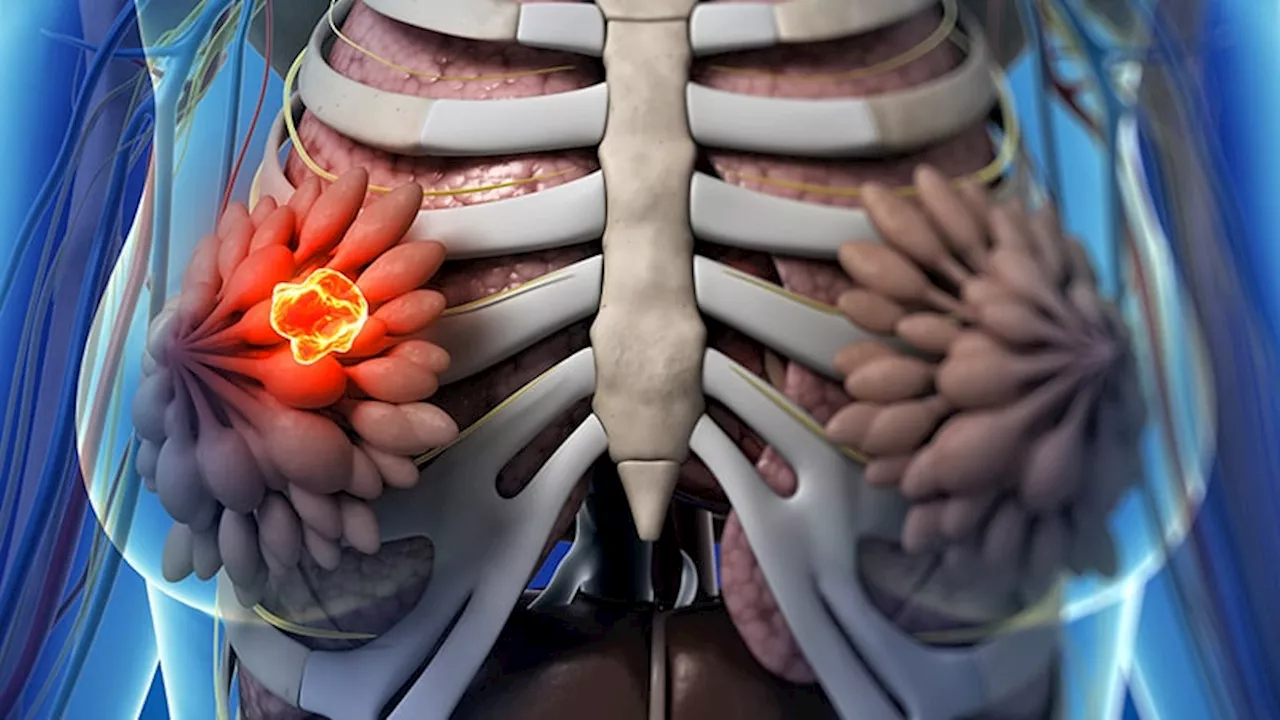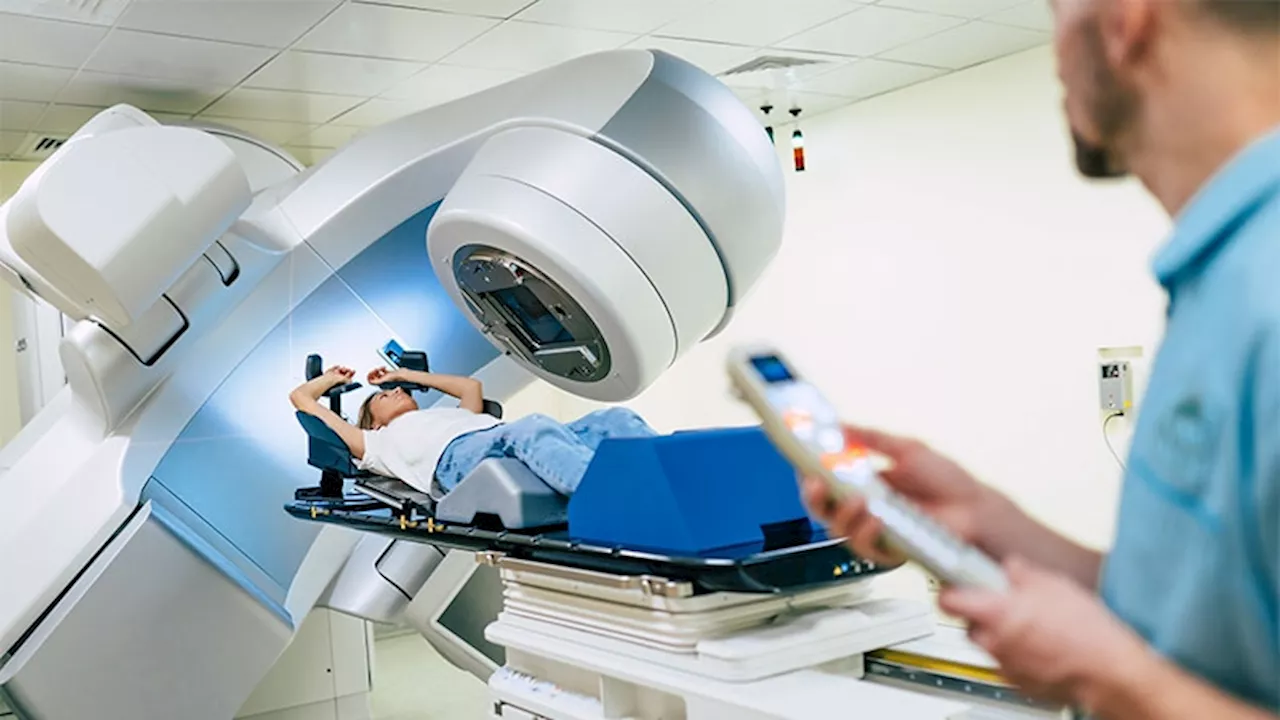A large randomized trial found no difference in oncology outcomes or reconstruction complications with accelerated radiation regimens after mastectomy.
Over the past decade, radiation oncologists have moved toward hypofractionated regimens for breast cancer to ease the burden of treatment. The benefit of shorter radiation treatment durations at higher doses is less time in the clinic and lower out-of-pocket costs for patients. For those who live far away, this time- and cost-saving approach could make the difference between having radiation or forgoing it.
"Now we have robust data from hundreds of academic and community centers and from patients with any type of reconstruction that clearly show the safety and effectiveness of short course radiation," principal investigator."The results of this trial show we can safely reduce treatment time for these patients to 3 weeks, without compromising their reconstruction."
Women in the trial had unilateral invasive pT0-2, pN1-2, or pT3N0 breast cancer. Patients received treatment at 209 centers across the US and Canada, and they were a median of 46 years of age. The total radiation dose was 50 Gy in the conventional regimen arm and 42.56 Gy in the hypofractionated regimen arm.
Malignant Breast Neoplasm Breast Carcinoma Aesthetic Medicine Facial Rejuvenation Breast Reconstruction Breast Prosthesis Reconstruction Of The Breast Breast Mammary Gland Mastectomy Wound Management Wound Care Cancer Malignant Neoplasia Carcinoma Malignant Neoplasm Radiation Therapy Radiotherapy Radiation Oncology Wound Healing Wound Repair Radiation Dose Wound
United States Latest News, United States Headlines
Similar News:You can also read news stories similar to this one that we have collected from other news sources.
 Shorter Course of Breast Cancer Radiation Won't Affect Breast ReconstructionA shorter course of post-mastectomy radiation doesn't jeopardize a patient's chances of successful breast reconstruction, a new study finds.
Shorter Course of Breast Cancer Radiation Won't Affect Breast ReconstructionA shorter course of post-mastectomy radiation doesn't jeopardize a patient's chances of successful breast reconstruction, a new study finds.
Read more »
 How scientists are keeping the Orion spacecraft safe from radiationNASA's Orion spacecraft will need to protect astronauts from dangerous radiation when they visit the moon in the upcoming Artemis missions.
How scientists are keeping the Orion spacecraft safe from radiationNASA's Orion spacecraft will need to protect astronauts from dangerous radiation when they visit the moon in the upcoming Artemis missions.
Read more »
 Are Dental Extractions Post-Radiation for Head and Neck Cancer Safe?Post-radiation dental extractions posed an elevated risk for exposed bone and osteoradionecrosis in patients with head and neck cancer.
Are Dental Extractions Post-Radiation for Head and Neck Cancer Safe?Post-radiation dental extractions posed an elevated risk for exposed bone and osteoradionecrosis in patients with head and neck cancer.
Read more »
 Hypofractionated Radiotherapy Is Noninferior to Conventional Fractionation in Locoregional, Early BCPatients were randomized to receive either hypofractionated radiotherapy or conventional fractionation.
Hypofractionated Radiotherapy Is Noninferior to Conventional Fractionation in Locoregional, Early BCPatients were randomized to receive either hypofractionated radiotherapy or conventional fractionation.
Read more »
 Using antimatter to detect nuclear radiationDiscerning whether a nuclear reactor is being used to also create material for nuclear weapons is difficult, but capturing and analyzing antimatter particles has shown promise for monitoring what specific nuclear reactor operations are occurring, even from hundreds of miles away.
Using antimatter to detect nuclear radiationDiscerning whether a nuclear reactor is being used to also create material for nuclear weapons is difficult, but capturing and analyzing antimatter particles has shown promise for monitoring what specific nuclear reactor operations are occurring, even from hundreds of miles away.
Read more »
 Newest Starlink satellites are leaking even more radiation than their predecessors — and could soon disrupt astronomyHarry is a U.K.-based senior staff writer at Live Science. He studied marine biology at the University of Exeter before training to become a journalist. He covers a wide range of topics including space exploration, planetary science, space weather, climate change, animal behavior, evolution and paleontology.
Newest Starlink satellites are leaking even more radiation than their predecessors — and could soon disrupt astronomyHarry is a U.K.-based senior staff writer at Live Science. He studied marine biology at the University of Exeter before training to become a journalist. He covers a wide range of topics including space exploration, planetary science, space weather, climate change, animal behavior, evolution and paleontology.
Read more »
